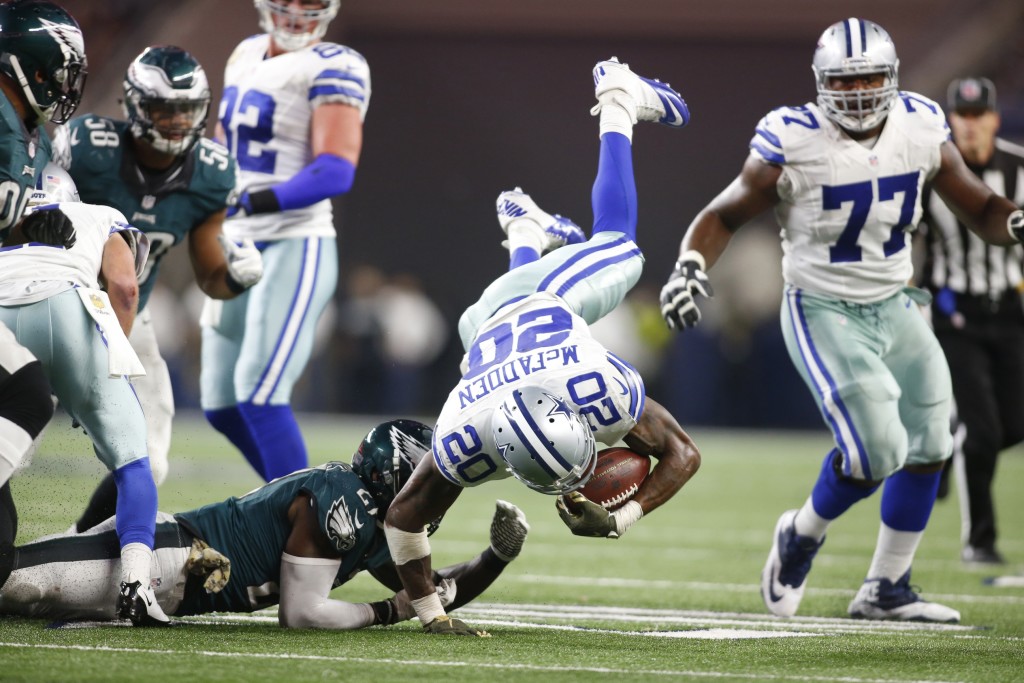Ad Disclosure
Malcolm Jenkins Admits He Hid His Concussion from Coaches and Trainers
By Jim Adair
Published:

The NFL’s concussion protocol is built to work. But to even be put into it, you have to take a fairly obvious concussion-possible hit or self-report. Players are hesitant to do the latter because they don’t want to miss time, or they think they can still do better than their replacements. I don’t know what Malcolm Jenkins’ reasoning was, but the team isn’t psyched about it.
After hitting Darren McFadden in the second quarter, Jenkins said he felt like he “was in a fog,” and that “it was like being a rookie.” He said he felt better as the game went one, but “the game was moving really fast … I knew something wasn’t right.”
He held back this information until after the game:
“I just kind of kept it to myself, which I really shouldn’t have done. The medical staff and the coaching staff were kind of upset with me afterward. As players, we’ve all been made aware of the effects of concussions. It’s definitely something I’ll handle differently.
I think they all trust my own judgment. Nobody really knew anything or asked me anything. I was still able to digest the plan. We were still making adjustments and I was still making calls.”
Jenkins is now in the protocol, and we won’t know if he did any more damage – that will keep him out longer – by staying in the game after his initial concussion. It’s the biggest issue facing the NFL. Will Smith’s got a whole movie coming out about it. The NFL is backing scientists who still say CTE isn’t caused by brain trauma. But the team (and the league) can’t do anything unless players do their part.
When he's not writing about sports here or ranting about them on Twitter, Jim is probably watching X-Files on Netflix or drinking a beer somewhere. Jim has nothing against hockey, it's just not his style. He once met Duce Staley at a Sixers game.